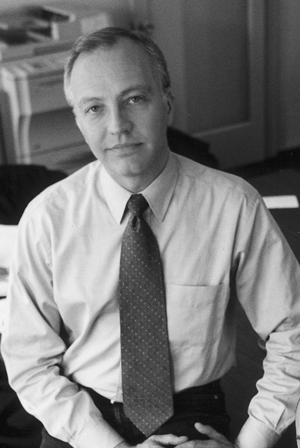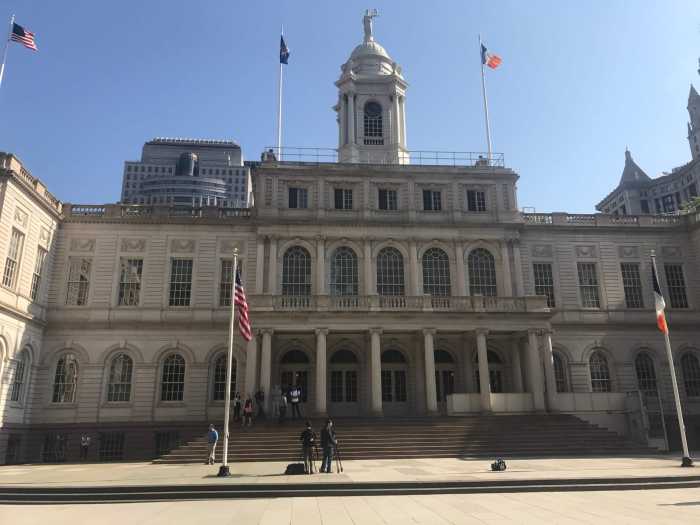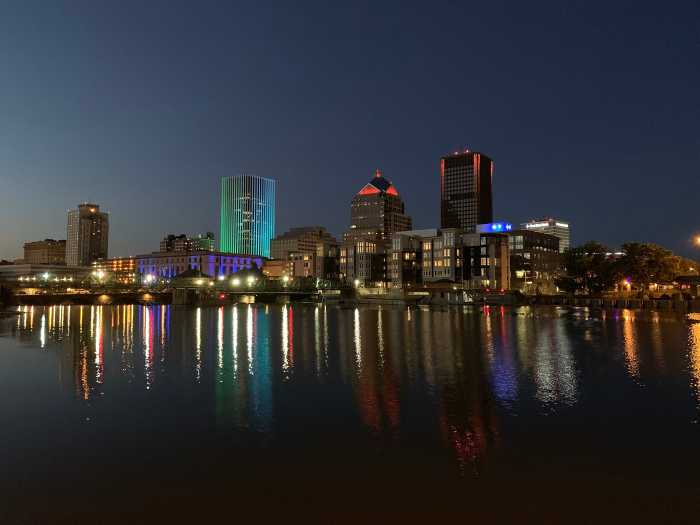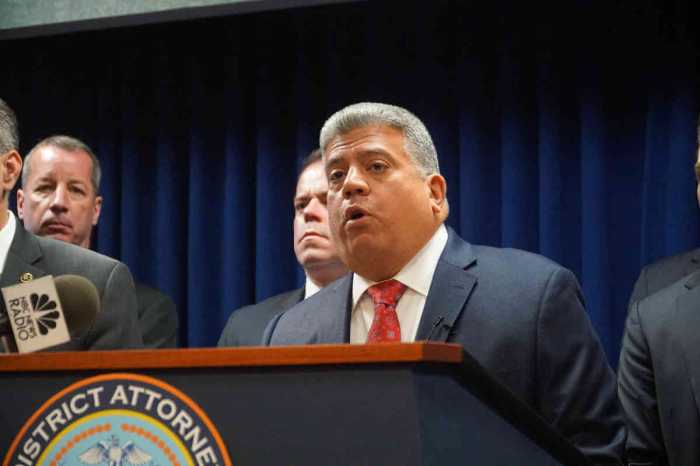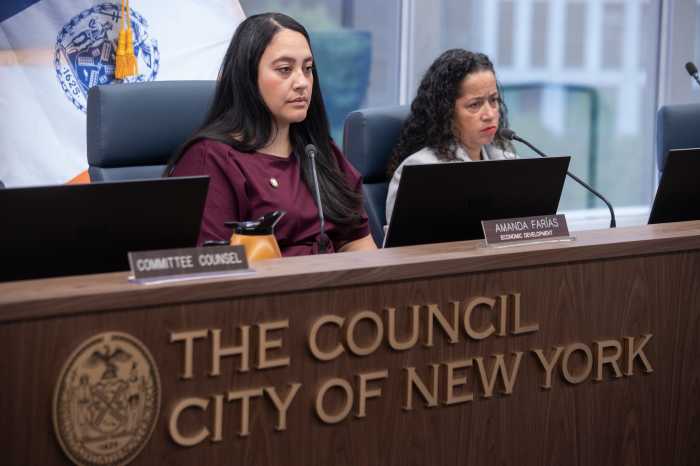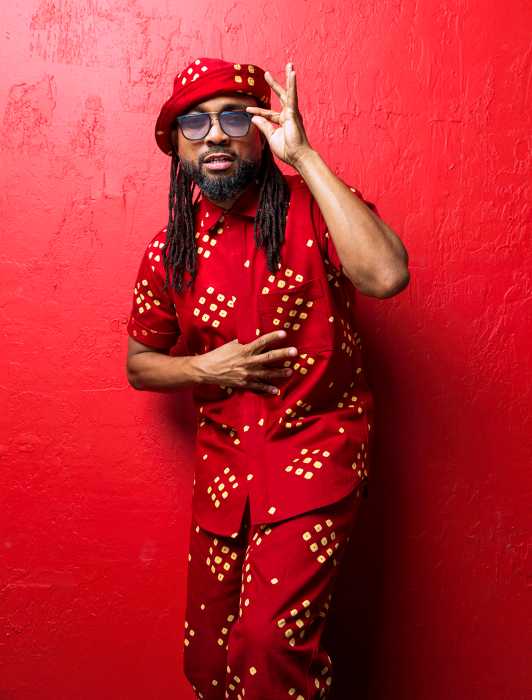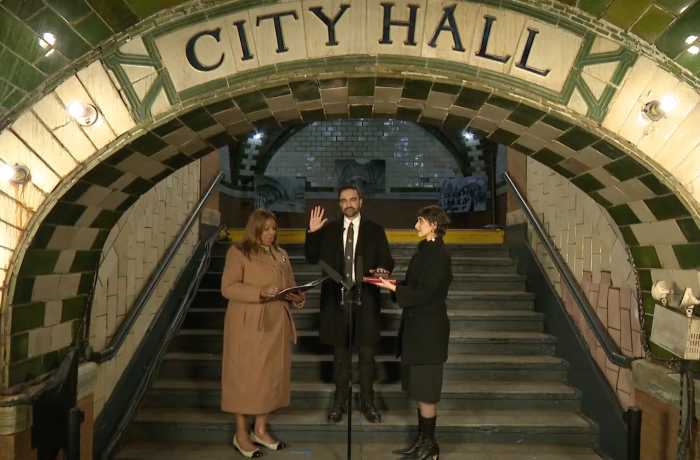At Creating Change, Matt Foreman, others urge strong offensive to regain moral high ground
So much of the bigotry we face is framed around so-called “deeply held religious beliefs,” argued National Gay and Lesbian Task Force executive director Matt Foreman, that the gay civil rights movement will not advance further unless it goes forward as a united secular and religious community.
Oakland, just across the bay from San Francisco, was the host to the Task Force’s annual Creating Change conference last week, where a record 2,500 lesbian, gay, bisexual, and transgendered activists came together, to “plan, commiserate, and learn,” Foreman said.
“Our message for the conference is that we and our allies need to reclaim moral values—and that involves not hesitating to talk about the immortality of our opponents’ tactics,” he stated in an interview on Saturday.
Creating Change is “the annual gathering of the activist family…. to share success stories and failures.”
“It’s the one time of the year to meet people who are doing the same thing,” Foreman said, “because so many work in relative isolation, people are hungry for skills and information.”
They came from most states—including large delegations of New York activists, from organizations like the Empire State Pride Agenda and The Door, which operates an educational and health program for youth in Lower Manhattan—and attended almost 300 workshops, about half of which were organized by NGLTF staff, the rest by other organizations and individuals.
“We don’t censor,” Foreman said.
Subjects ranged from serving homeless LGBT youth, to lobbying rules for non-profits, a critique of the gay movement from “radical queers,” fighting for LGBT rights within the United Nations, police misconduct, planning for World Pride in Jerusalem, and the ballroom scene. Attendees watched a movie, produced by Children of Gays and Lesbians Everywhere (COLAGE), about what it’s like to have LGBT parents.
But on Saturday, and in his keynote address the day before, Foreman emphasized that “the secular part of the movement has distanced itself from people of faith, and that’s got to end.”
On Saturday afternoon, the Empire State Pride agenda’s Christopher Cormier led a session about organizing among communities of faith. He emphasized that the Pride Agenda isn’t a religious organization.
“We’re an advocacy group, not a religious group,” he said, but ESPA’s “Pride in the Pulpit” program has new attracted more than 450 members and is crucial to undoing what Foreman called “the unholy alliance between religious extremism and political extremism.”
“We don’t do theology,” Cormier said. “This is about passing legislation.”
In California, gay Democratic San Francisco Assemblyman Mark Leno introduced his gay marriage bill this year in the sanctuary of Glide Memorial Methodist Church in San Francisco, with ministers from half a dozen churches present. After its first introduction last year that legislation died early, partly because of opposition from religious fundamentalists. But this year it passed both the Assembly and the State Senate, only to be vetoed by Republican Governor Arnold Schwarzenegger. Leno credits some of the success to the efforts of religious communities in advocating for it.
NGLTF has grown quickly since Foreman took over two and a half years ago. Its $9.1 million budget has doubled, as has its staff, now at a total of about 50. About $1.6 million of its funding came in two enormous grants from a donor who remains anonymous—even to Foreman. But even after its explosive growth, Foreman’s group is small compared to the Washington-based based Human Rights Campaign, which ran on a $30 million budget last year, over half of the total contributed to all national gay rights organizations combined.
Foreman and HRC butted heads after the 2004 election when Foreman criticized the larger group when the New York Times reported it was backing away from gay marriage as a goal and considering giving its support to Republican President George W. Bush’s Social Security privatization scheme. HRC denied the report.
“A more radicalized gay movement will make more progress,” Foreman said. “I don’t think accommodation gets you anywhere. But you need different kinds of organizations… Aggressive activism is not incompatible with behind-the-scenes lobbying. In fact, they’re complementary.”
According to Foreman, about 75 percent of Americans support non-discrimination legislation for gays, and even 77 percent of Christian Evangelicals support safe schools laws. But only 17 states have non-discrimination laws, just seven of those include transgender protections, and less than 10 specifically protect gay and lesbian kids from violence in their schools.
The federal government offers no protections whatsoever.
The NGLTF has expanded its operation in the nation’s capital, adding eight new staff members, including long-time Washington hand Eleanor Acheson, an assistant attorney general in the Clinton administration and the granddaughter of Dean Acheson, secretary of state in the Kennedy administration.
Foreman demanded that politicians who claim to be gay allies “take a stand for us and not run away.” He called the posture taken in 2004 by leading Democrats, including presidential nominee John Kerry, “spineless and incoherent.”
“Instead of being on the defensive, push back,” Foreman said as a rule of thumb for those seeking progressive change.
gaycitynews.com

